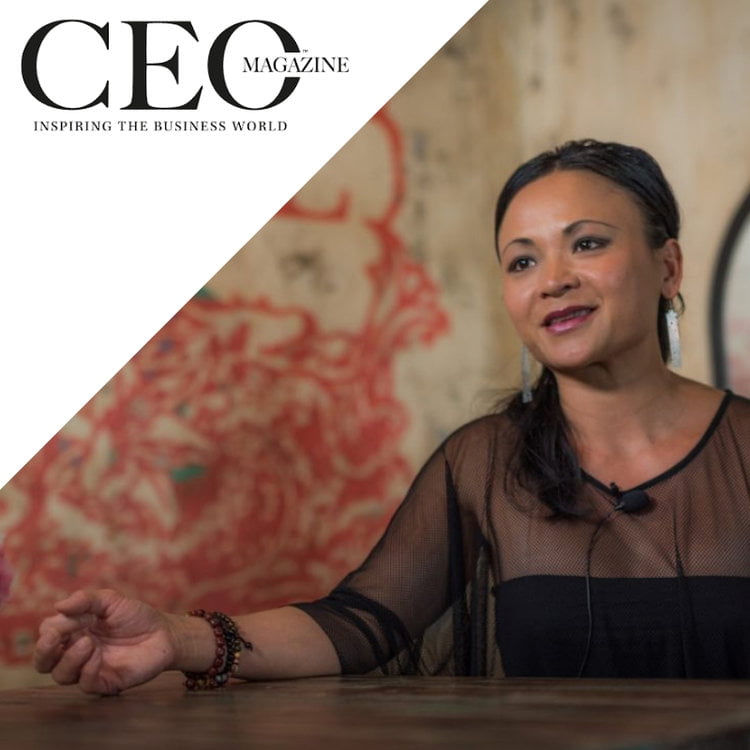From generation to generation, we have lived by rules. Rules that were passed down by our ancestors. Rules that were programmed onto our minds by our parents, teachers, leaders, educational systems, society, media and politicians. Rules that fed us definitions for every aspect of our existence on who to be, what to do, how to live. Rules on culture, on religion, on sexuality, on education, on gender, on family, on career, on identity. Some of these beliefs got better over time, but many of these rules do us more harm than good.
I prefer to question everything. I prefer to change the outdated rules that make no sense to me. Rules that no longer serve me. I prefer to define my own meaning of success, my own meaning of love, my own meaning of happiness and my own meaning of fulfilment.
Those who know me well will know that I have unconventional views around monogamy, sexuality, marriage and love. Unconventional views that often times makes those who still abide by the old mainstream paradigms a little uncomfortable. The concepts are new and disruptive to them, but they admit, that, whether they agree or not, it has at least made them think. My long-held beliefs on relationships is not a topic I have written about, nor have I spoken about on stage before. Why? Because I have never been asked to. On three separate occasions this past week, I was asked to.
There are many things I disagree with about marriage and monogamy that so much of society has accepted as strict rules of what constitutes a loving relationship. The idea of ownership of another person disturbs me. The word wed-lock makes me want to run for my life. Psychotherapist and New York Times bestselling author Esther Perel, in her interview with Tony Robbins puts it beautifully. “Your partner never belongs to. At best, he or she is alone with an option to renew.” Robbins chuckles and concludes, “so make yourself worthy of renewal.”
I do not believe in marriage and I do not believe in the traditional definition of monogamy. I never have and I never will. One man, one woman, for better or for worse, till death do you part, makes me shudder with dread. It is not practical and not natural. It does not make sense to me. We were never designed to be with only one person until the day we die. I do not believe in betrayal and pretending either. I do however, strongly believe in self truth, freedom of choice, freedom of expression, freedom from suffering, and freedom from judgement.
Love is freedom.
Dear reader, I think it’s awesome if the traditional beliefs around marriage and monogamy work for you. I am happy for you. I wish the best for you. May you live a joyful, adventurous and fulfilled life together in holy matrimony until death do you part.
To quote my teacher, American author and internationally syndicated sex and relationship columnist, Dan Savage; “One of the things that drives me crazy as a non-monogamous person is monogamous people coming up to me and telling me, “you’re doing love wrong.” The corrective for that is NOT non-monogamous people going up to monogamous people and saying, “you’re doing love wrong.” We each get to do love how it works for us as a couple, and as an individual.”
Savage agrees that we live in an atomized society where the majority still follow the indoctrinated program that states; if you remain with one person until death do you part, regardless of how miserable you may be, then your marriage is a success. Death equals success. Congratulations, someone died. “What if that relationship of fifty years was abusive? What if both partners were neglectful? What if they were contemptuous of one another? What if there was physical abuse and emotional abuse, and miserable, unhappy children were the product of that relationship? But the two people who are together for ten, twenty or thirty years, had a few kids and a wonderful partnership around raising a family, who learned some powerful lessons, shared some great adventures together, and whose relationship ran its course, and, as evolved human beings decided to amicably part ways and have new relationships – “Oh, they failed.” It’s a bullshit standard. Why do we have to slap the ‘failure’ label on that relationship? Why can’t that relationship be a success?”
Savage continues… “Marriage is the only thing we think is a failure if anyone gets out alive. Successful short-term relationships must be celebrated as much as successful long-term relationships. We need to reassess what is failure and what is a success. If your whole life is a string of failed relationships, maybe you should change the way you feel about them.” There is no such thing as failure, only feedback so that we can evolve. Class is always in session. Let’s leave the outdated belief of failure where it belongs – in the past. There is courage and there is beauty in trying, and failing, and learning and trying again – whether it be with the same person or with someone else. There is no shame in leaving. There is no shame in staying either.
My partner Mark and I have been together eighteen years. He is the father of my children. Mia is fourteen years old and Jethro is ten. We own businesses together and raise our two highly evolved children together. We have different interests and hobbies and we often vacation separately. We tend to not mix our friendship groups either. While we are not married, I still call him my husband. The last eighteen years has seen us share rewarding and delicious times… and we have shared crushing times – times so tough, we have fallen to our knees. We are committed to building a future for our children and we are committed to the sustainability of our union. We are not committed to the bullshit system of monogamy. Commitment is not synonymous with exclusivity. Polyamory is about balancing freedom with mutual care. We negotiate togetherness and separateness. Our relationship is whatever we say it is. We write our own rules. We are not bound by dogma. We do not live by the ‘what would people think’ mantra like both our parents have in the past. Our relationship may end or it may last. Who knows? What is more important to us is autonomy, and that we evolve into the truest versions of ourselves – to be able to be ourselves in one another’s presence versus having to let go of parts of ourselves to be together. What is important to us is that we do not live by what society expects us to be. For us, this is true sustainability.
In his book Sapiens: A Brief History of Humankind, Yuval Noah Harari gives evidence that ten thousand years ago we lived our relationships in egalitarian polyamorous tribes. Evolutionary psychologists state that some foraging bands were not made up of nuclear families cantered on monogamous couples but rather living in communes devoid of private property and monogamous relationships. In these communities, women could have sex and form intimate bonds with several men and women simultaneously, and all of the bands adults cooperated in parenting and shared the responsibility of the children. Since no man knew definitively which children were his, all men showed equal concerns for all youngsters. Humankind then evolved to extended families and then to nuclear families and then to the single and dating models we know today. It is in this existing mainstream paradigm that we use words such as infidelity and monogamy. Divorce and infidelity has only ever existed since marriage was invented. As humans, there are so many complexities and dimensions to us. As humans, we have natural needs, nuances, urges and desires at different times in our lives – for love, companionship, care, intimacy, sexual adventure and self-expression. Our natural make-up should be acknowledged and appreciated, not suppressed, vilified and hidden.
Couples in non-monogamous relationships understand and embrace the fact that as a species, it is unfair and unnatural to think that one person can tick all boxes, whether it be sexual compatibility, spiritual connection, energy resonance, social intelligence, heart intelligence or emotional intelligence, and the list goes on. To expect our spouses to be all these things for us is unrealistic, unreasonable and damaging. The emotional labour is intense. The energy cost extreme. It is not sustainable. The idea that we should meet our partner’s every need is a toxic one. This program is a flawed. We cannot be anyone’s everything. To expect our spouses to be our best friend is an unnecessary burden. Our best friends should be our best friends. There is freedom here for all parties. As Esther Perel puts it, “the reality is, we can’t expect one person to provide what a whole village once provided.”
My friend Miriam Feiler recently contributed an article for the Huffington Post and invited feedback from her peers. The story encompasses an ex-pat wives’ group. One of the women had discovered that her husband, who travels frequently for business had been involved in an extra-marital affair. Feiler writes: “She was feeling shocked and upset, and had reached out to the wives for advice. What flowed in the comments section were over 200 strong and angry responses from the forum. The overwhelming majority were calling for his head. Get rid of him, take him for all he’s worth, what a pig, here are my divorce lawyer’s details, get the hell out and take the children, that’ll serve him right, the bastard.” Feiler continues, “I was quite frankly taken aback by the anger and one-sided perspective. Not one rational response was offered, recommending that the couple attend counselling to see if there were deeper reasons why intimacy had left the marriage. The comments were unanimous in their total, venomous rage.” Sadly, no one in the women’s group asked about the circumstances of the infidelity or asked how the lady was coping. “People were so caught up in their own opinions there was little empathy.” Feiler posed this question to the readers. “Would divorce rates drop if we all became swingers?”
I was compelled to respond….
The vitriol of the women in the forum is predictable and unfortunate. People are always afraid of what they do not understand. No, divorce rates will not drop if we all became swingers simply because we are not all built to swing. It takes a particular type of ‘species’ to swing and be comfortable with group sex and all the additional complexities that come with it. Swinging involves the couple and at least one other – a minimum of three. In reality, not all couples have the sexual compatibility nor the emotional fortitude and mental strength to participate in, survive and thrive in this dynamic. It takes a certain ‘species’ to be okay with it.
In the USA, 50% percent of first marriages, 67% of second, and 73% of third marriages end in divorce. Marriages where one or both spouses admit to infidelity, either physical or emotional is 41%. In Australia, marriages last 12.1 years on average – 1 in 3 ending in divorce. What’s missing here? I believe that what will keep the divorce rate down is greater acceptance, more open mindedness, more open conversations, more honesty and more freedom… and then more conversation and more conversation again. Personally, it doesn’t bother me whether divorce rates go up or down. I think it’s great that couples divorce if their life together is joyless and miserable. I am cognizant of the fact that with each divorce, acrimony ensues. There are emotional, mental, physical and financial costs for everyone involved. If you betrayed someone’s trust and broke your agreements, then you’ve got to sort that shit out. But, what if couples had the courage to have open, honest and realistic conversations around the issue of sex, sexuality, love, monogamy and fetishes AT THE START of the relationship…BEFORE the shit hits the fan. Because for most couples, it is not a matter of IF shit hits the fan, it is a matter of WHEN shit hits the fan.
Savage writes about an interesting concept he calls, The Price of Admission. This concept makes complete sense to me. Says Savage, “it’s my way of saying settling down requires settling for. You have to pay the price of admission… and part of the price of admission is not just about sex. It’s about other things too. You pay the price of admission when you go to the amusement park to ride the roller coaster. If the price is worth it, you pay, and you get on the roller coaster. If you’re paying the price of getting on the roller coaster, and the entire ride you can’t stop bitching about how much it costs to get on the roller coaster, don’t pay that price of admission to get on that roller coaster. When my husband and I first got together, I paid the price of admission I was then willing to pay. Accept that your partner will be attracted to other people, and that you’ll be attracted to other people too.” It is dangerous to think that a sufficiently intense love should cause you to cease to be attracted to anyone else. We can love more than one person at a time.
Conversations about ‘upholding the moral fabric of society’ bore me. Your morals are different to my morals. My integrity is different to your integrity. What works for you does not work for me and vice versa. I care not to judge the choices of others, and I always have a private giggle at those who judge mine. When anyone starts lecturing about righteous morality I shut off and leave the conversation. I do not care to waste valuable energy on the ignorant opinions of others. Those who judge the most are secretly those who feel the most judged. People are always afraid of what they do not understand.
The late Psalm Isadora put it perfectly – “The people who go around saying I am more moral than you are simply saying, ‘I am better than you because my chains are bigger.’”
Monogamy should be a choice, not an obligation. It is the old dogma that tightens our chains and causes us pain. Trust is an active engagement with the unknown. I am grateful that the definition of marriage and monogamy is continually being redefined. I am grateful that more and more couples are learning to have open and honest communications about desire and freedom and pleasure and abundance in a culture that imposes scarcity and self-denial. I am grateful that more and more couples are learning to tolerate, or even fully explore kinkiness and imagination, and rebelling against monogamy and society’s bullshit rules around sex and marriage. I am grateful that the collective shift (at least with the people in my expansive world) is to the commitment to one’s partner and not the system of monogamy.
As usual, Savage sums it up beautifully. “I like to think that I’ve helped people make their relationships stronger by encouraging people to have more realistic expectations about relationships and what they mean. But so much of my advice is about preserving a relationship. Valuing a relationship over the sort of ideals about how relationships ought to be and embracing what your relationship actually is, and determining whether it has value and should survive, as opposed to looking at these outside ideals around religion or monogamy or anything else and saying, “Well, we fall short of this ideal. Therefore, our relationship needs to end.” Well, maybe the ideal failed you. You didn’t fail the ideal.”








